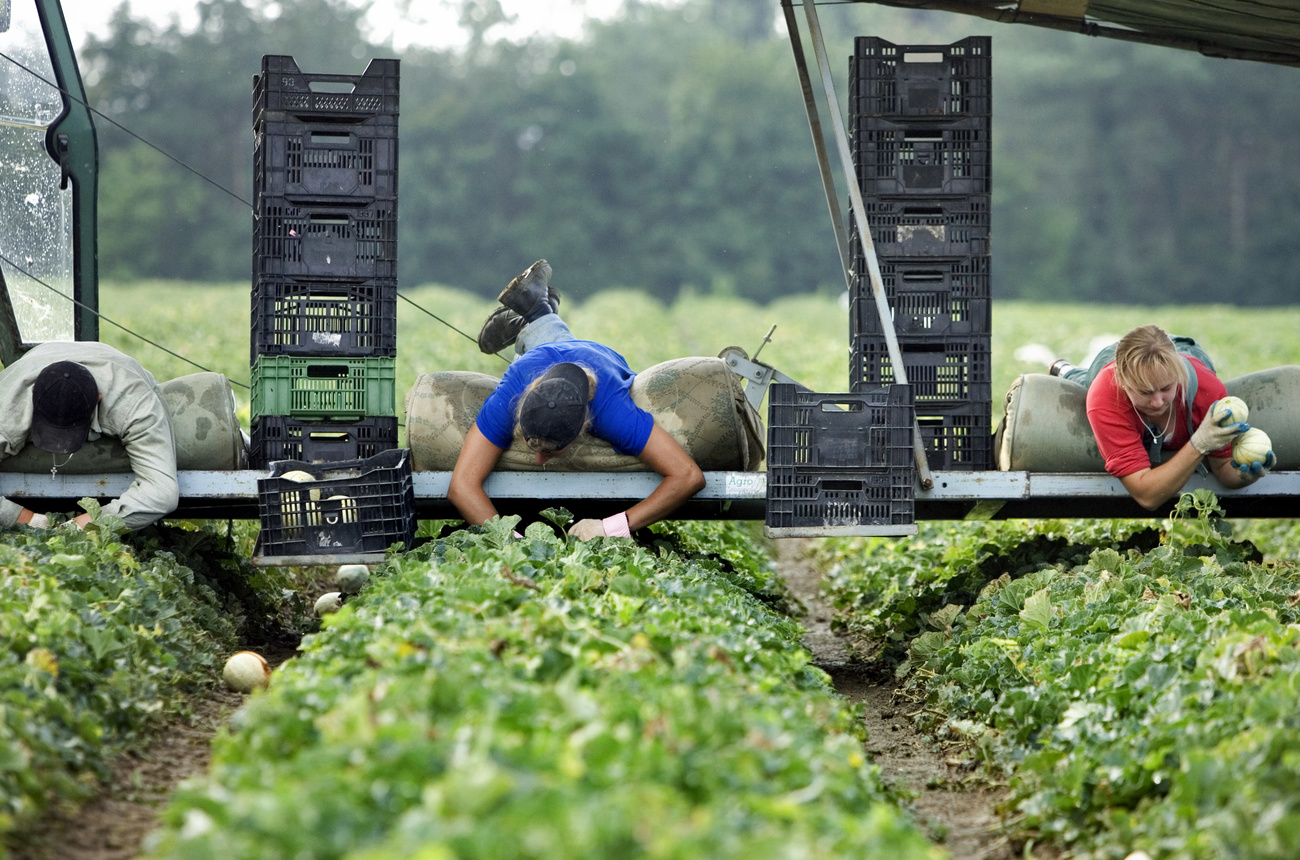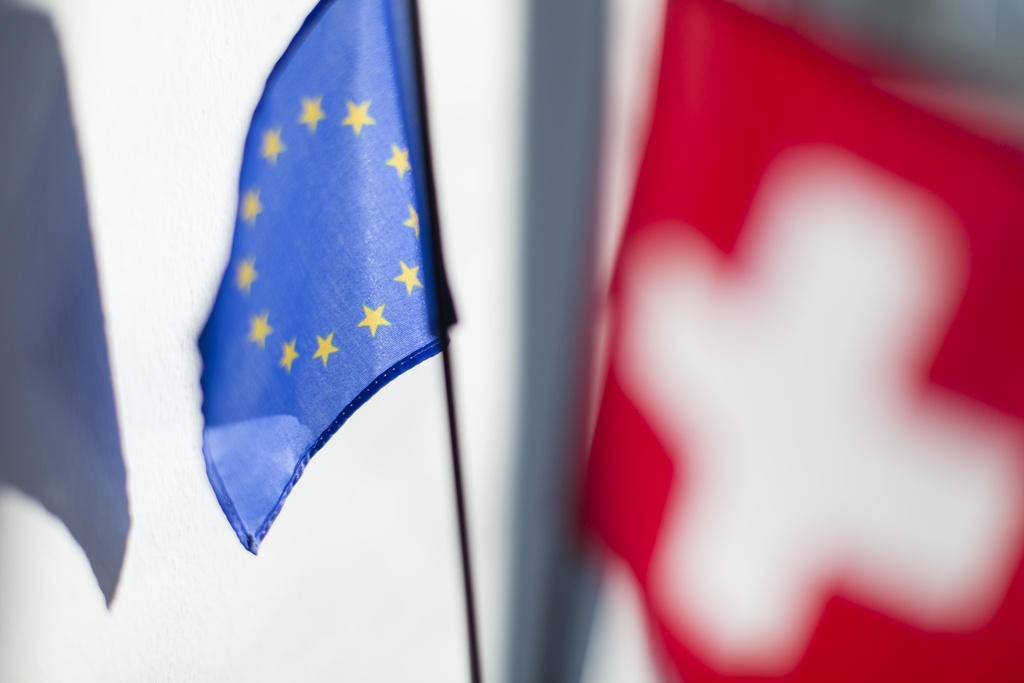
How Switzerland’s failed immigration vote affects its relationship with Europe

Why did the latest initiative to limit EU immigration fail, and what does it mean for future relations between the Alpine country and the European bloc? Reactions from Swiss and EU politicians, as well as political analyst Claude Longchamp, provide some answers.
Following yesterday’s votes on five issues, including EU immigration, Justice Minister Karin Keller-Sutter told the media that the result was another endorsement by voters of the government’s policy of bilateral accords with Switzerland’s main trading partner.
“It’s also good news for our European partners as Swiss citizens voted for stable relations with the EU,” she said, adding that bilateral treaties were the best possible foreign policy solution.

More
Swiss rebuff right-wing plan to curb EU immigration
Keller-Sutter said the government would decide in the next few weeks on a proposed legal framework agreement to regulate the more than 120 bilateral accords that exist between Switzerland and the EU.
In a first reaction, EU officials welcomed the vote result. “It’s a beautiful Sunday for democracy and Europe,” said Paolo Gentiloni, the European Commissioner for Economy. Ursula von der Leyen, president of the EU Commission, tweeted a statement in which she called the Swiss vote outcome a “positive signal” for future relations between Switzerland the EU.
The vote of the citizens of Switzerland upholds one of the core pillars of our relationship: the mutual freedom to move, live and work in Switzerland and the EU.
— Ursula von der Leyen (@vonderleyen) September 27, 2020External link
I welcome this outcome and see it as a positive signal to continue to consolidate and deepen our relationship pic.twitter.com/yWYCzjtY7MExternal link
The initiative was put forward by the right-wing, anti-EU party, the Swiss People’s Party, which holds the most seats in Swiss parliament. Party president Marco Chiesa blamed the Covid-19 crisis for the defeat at the ballot box. He said the virus and its fallout overshadowed the campaign. “But we will continue to fight for the country and take back control of immigration,” he said.
So what does the loss mean for the party, six years after it narrowly secured victory with a similar anti-immigration initiative, as well as future EU relations? We put these questions to political analyst Claude Longchamp.

swissinfo.ch: In 2014, the Swiss People’s Party initiative “against mass immigration” was narrowly accepted. Now a similar initiative has clearly failed. What is different today?
Claude Longchamp: With the 2014 initiative against mass immigration, even the government and parliament were not quite clear on what it meant. This year’s initiative, on the other hand, was more radical, and it was clear to everyone that a “yes” vote would have consequences: acceptance would have triggered the withdrawal from the first bilateral agreement with the EU governing the free movement of people, and from the internal market with the EU.
In 2014 the Swiss People’s Party was in top form. And [its leader] Christoph Blocher was the undisputed master of political communication in the country at the time. Neither of these things is the case today, although the People’s Party is still the strongest party in Switzerland.
Also at that time, the number of people coming to Switzerland from other countries was much higher. Today, however, immigration is no longer at the top of the worry barometer [an annual study looking at what worries people in Switzerland]. People are most concerned about having enough money to retire and high health costs and health insurance premiums.
The 2020 anti-immigration initiative was considered an important bellwether regarding a long-pending institutional framework agreement with the EU. Is the way now clear for the agreement to move forward?
C.L.: If we had said yes to the initiative, the framework agreement would probably have been off the table.
But today’s “no” does not indicate an automatic “yes” to the framework agreement. The Federal Council (government) is not in favour of it, and there is also a great deal of skepticism in parliament. Labour unions are not behind it either, as they made clear just two days ago [in a letter to the Federal Council].
A way out would be a simpler agreement with an addendum containing only the three most important sticking points [labour market protection measures, citizenship rules for EU immigrants and state aid]. This would perhaps make an agreement possible. If, on the other hand, skepticism prevails, Switzerland will be faced with a debate on principles, especially about jurisdiction and wage protection in the country.

More
What is this EU framework deal?
Adapted from German by Veronica DeVore

In compliance with the JTI standards
More: SWI swissinfo.ch certified by the Journalism Trust Initiative
































Join the conversation!